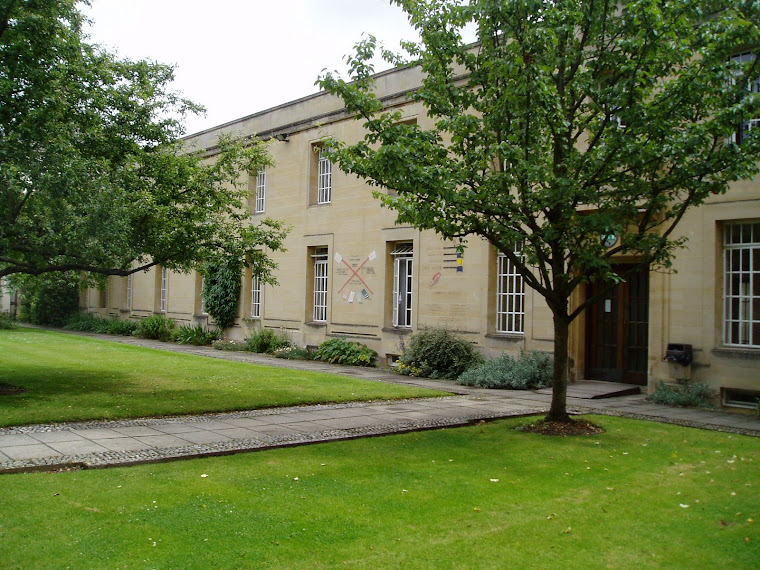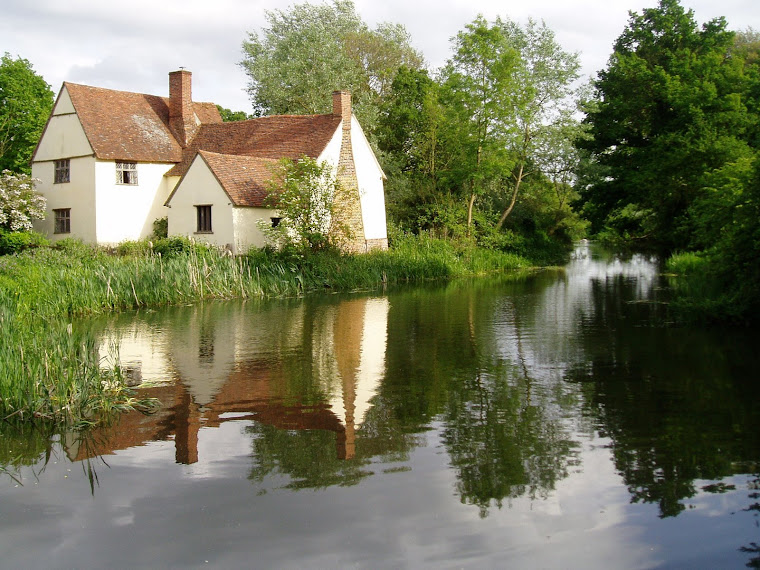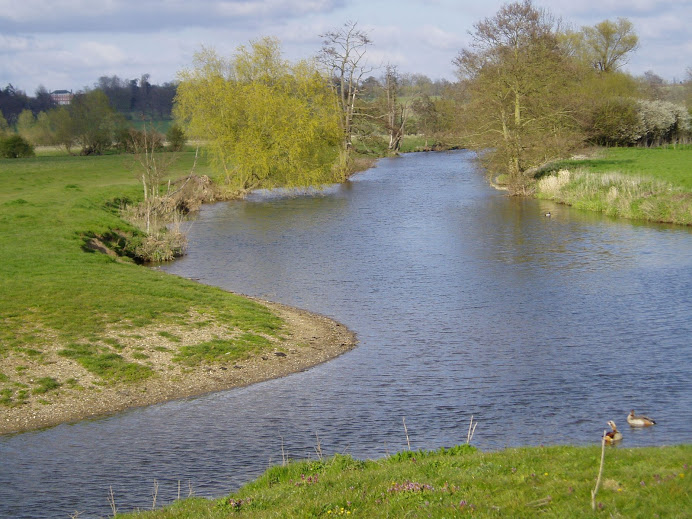Tuesday, 26 August 2014
Friday, 1 August 2014
The Priesthood of All Believers
Throughout church history we can find Christians who embraced the doctrine of the priesthood of all believers. I would argue that it was held by the early church and applied by groups of Christians in many ages and communities. The Apostle Peter writing to exiles, chosen sojourners, of the Dispersion in Pontus, Galatia, Cappadocia, Asia and Bithynia, shared the following words:
But you are a chosen race,a royal priesthood, a holy nation, a people of His possession, so that you proclaim the praises of him who called you out of darkness into His marvellous light.
Ὑμεῖς δὲ γένος ἐκλεκτόν, βασίλειον ἱεράτευμα, ἔθνος ἅγιον, λαὸς εἰς περιποίησιν, ὅπως τὰς ἀρετὰς ἐξαγγείλητε τοῦ ἐκ σκότους ὑμᾶς καλέσαντος εἰς τὸ θαυμαστὸν αὐτοῦ φῶς·
These words, found in 1 Peter 2:9, have been the basis for the doctrine of the priesthood of all believers. And it is now understood in evangelical churches to mean that all Christians exercise a priesthood and a ministry to God, their brothers and sisters in Christ, and those outside of the Kingdom of God. We, Christians, are all servants of the Most High God and we serve the King of Kings and Lord of Lords. This does not mean, however, that all are called to preach from the pulpit or teach others in the church. Ephesians 4 and 1 Corinthians 12 and 14 teach us about ministries and offices in the church according to the Lord's gifts, gracious calling and good pleasure.
I would strongly argue that we do not find within the New Testament a clearly defined group of professional clergymen and/or priests who had special authority to preside at the Eucharist/Holy Communion and conduct baptisms. It seems to me that the early Christians shared communion regularly in homes and probably, in times of persecution and hardship, among themselves whenever they could meet and worship the Lord. It is interesting that Philip, the evangelist and deacon, conducted the baptism of the Ethiopian eunuch. The division of church leaders into clergy and laity comes much later, and was, to my way of thinking, a human institutional procedure, an act of organized religion. These arguably bureaucratic and hierarchical procedures led to titles, dress codes, clerical collars, vestments and all sorts of religious paraphernalia.
The unhelpful split between clergy and laity has harmed and hindered the application of the doctrine of the priesthood of all believers. In some traditions and faith communities they insist that Holy Communion is only valid when a priest, some say a male priest, conducts the service and consecrates the element(s). Only clergy are allowed in certain areas and wear special vestments according to the time in the Christian year. Only clergy can baptize, hear confessions, and administer the sacraments according to these traditions. Baptists believe in two sacraments: baptism of believers and Holy Communion/the Lord's Supper. Roman Catholics believe in many more sacraments, and only priests can administer them.
I once attended a large gathering of Laestudians in Finland who wanted Lutheran priests to preside over the Eucharist. They did not allow their preachers and leaders to conduct this part of the event. ( My friend was a local Lutheran priest who had been specially invited to take the Holy Communion service.) I was surprised by the tears and emotional responses by the Laestudian men when they came forward as communicants. (Finns, in my experience, rarely show much emotion. I was also amazed to see so many pregnant women in the congregation! They believe in having very large families.) Finland claims to be the most Lutheran country in the world and among the churches there is a very strong belief in the teaching of Martin Luther. His writings are an established authority and it can be unwise to question them in certain Lutheran assemblies (forsamlingen).
Luther was a strong advocate of the priesthood of all believers, although he never used this exact phrase. I was surprised to learn that he did not say it or write it, even during his lengthy table talks. (Rick never said, in Casablanca, "Play it again, Sam" and Sherlock Holmes never said, in any Conan Doyle book, "Elementary, my dear Watson" and Martin Luther never said or wrote the exact words, the priesthood of all believers.) However, Luther did write:
Luther saw how bad was the sad stranglehold of religious traditions and vain doctrines, which led to vile and superstitious practices such as the sale of indulgences and false relics. The clergy were deliberately keeping people in ignorance, especially of the Word of God. The use of Latin hindered rather than helped the German people to learn about the Gospel.
In England, before the Reformation, the clergy opposed the translation of the Bible into the common tongue.
People were burnt for handling translations of the Bible in English. William Hunter is still remembered in Brentwood, Essex, for his martyrdom in the 17th century.
I praise God that we have been liberated from such clerical control. I praise God that in the Baptist church the communion does not need a man or mediator to conduct the service. We have fellowship with the Lord Christ during the Eucharist. He comes to us by His grace when we receive the elements, both bread and wine. The Eucharist is intrinsically holy and does not need the blessing or intervention of any priest, prelate, presbyter, pope, parson or even a pastor. The Lord's people may share together in this fellowship around the Lord's table, as I believe they did in early Christian times (Acts 2:42).
They continued steadfastly in the apostles' teaching and in fellowship, in the breaking of bread and in prayers.
ἦσαν δὲ προσκαρτεροῦντες τῇ διδαχῇ τῶν ἀποστόλων καὶ τῇ κοινωνίᾳ, τῇ κλάσει τοῦ ἄρτου καὶ ταῖς προσευχαῖς.
I would contend that the division of God's people into clergy and laity has led to spiritual inertia, failures in church growth and very unhealthy church practices.
Some clergy and ministers have become insecure and precious about their status. They quibble about their roles, special ministries, titles and positions. Like the Pharisees and Sadducees, Priests and Scribes, they invent and invoke human traditions, man-made rules and regulations to enhance and maintain their status, position and pride in their profession. They are precious about the title Reverend, Archdeacon, Rural Dean, Canon, or other designations.
There is no mention of the term reverend in the Bible, and the other titles are not used as they are today. It was never used by the Early Church Fathers and it is even deprecated in some Christian fellowships, as it smacks of institutional man-made religion and vain tradition.
Some wish to use the term reverend as being specific to ordained ministry. Now where does that come from? In some traditions it seems that reverend is synonymous with pastor or minister (ordained or with church ministerial recognition). Some do reserve it for accredited ministers, but this accreditation may cease if the minister leaves the ministry or if the ministry/chaplaincy/church position ceases. But where does this come from? What is the basis for this doctrine, this institutional and arguably bureaucratic regulation???
It seems to me this is a very artificial and contrived state of affairs.
Certainly in the USA the term reverend can be obtained through an internet website for money. You can arrange to be a minister through an electronic cyber ministry. The term seems to be loosely used, as in the case of a whole host of prosperity/Word faith preachers, and other controversial clergymen, ministers and televangelists. There are charlatans, hireling pastors and heretical preachers who would not be regarded, in mainline Christian fellowships and faith communities, as true ministers or reverent servants of the Gospel. Some clearly self apply the title Reverend when they start a ministry, whether it is in a church, in a radio station or television studio.
But you are a chosen race,a royal priesthood, a holy nation, a people of His possession, so that you proclaim the praises of him who called you out of darkness into His marvellous light.
Ὑμεῖς δὲ γένος ἐκλεκτόν, βασίλειον ἱεράτευμα, ἔθνος ἅγιον, λαὸς εἰς περιποίησιν, ὅπως τὰς ἀρετὰς ἐξαγγείλητε τοῦ ἐκ σκότους ὑμᾶς καλέσαντος εἰς τὸ θαυμαστὸν αὐτοῦ φῶς·
These words, found in 1 Peter 2:9, have been the basis for the doctrine of the priesthood of all believers. And it is now understood in evangelical churches to mean that all Christians exercise a priesthood and a ministry to God, their brothers and sisters in Christ, and those outside of the Kingdom of God. We, Christians, are all servants of the Most High God and we serve the King of Kings and Lord of Lords. This does not mean, however, that all are called to preach from the pulpit or teach others in the church. Ephesians 4 and 1 Corinthians 12 and 14 teach us about ministries and offices in the church according to the Lord's gifts, gracious calling and good pleasure.
I would strongly argue that we do not find within the New Testament a clearly defined group of professional clergymen and/or priests who had special authority to preside at the Eucharist/Holy Communion and conduct baptisms. It seems to me that the early Christians shared communion regularly in homes and probably, in times of persecution and hardship, among themselves whenever they could meet and worship the Lord. It is interesting that Philip, the evangelist and deacon, conducted the baptism of the Ethiopian eunuch. The division of church leaders into clergy and laity comes much later, and was, to my way of thinking, a human institutional procedure, an act of organized religion. These arguably bureaucratic and hierarchical procedures led to titles, dress codes, clerical collars, vestments and all sorts of religious paraphernalia.
The unhelpful split between clergy and laity has harmed and hindered the application of the doctrine of the priesthood of all believers. In some traditions and faith communities they insist that Holy Communion is only valid when a priest, some say a male priest, conducts the service and consecrates the element(s). Only clergy are allowed in certain areas and wear special vestments according to the time in the Christian year. Only clergy can baptize, hear confessions, and administer the sacraments according to these traditions. Baptists believe in two sacraments: baptism of believers and Holy Communion/the Lord's Supper. Roman Catholics believe in many more sacraments, and only priests can administer them.
I once attended a large gathering of Laestudians in Finland who wanted Lutheran priests to preside over the Eucharist. They did not allow their preachers and leaders to conduct this part of the event. ( My friend was a local Lutheran priest who had been specially invited to take the Holy Communion service.) I was surprised by the tears and emotional responses by the Laestudian men when they came forward as communicants. (Finns, in my experience, rarely show much emotion. I was also amazed to see so many pregnant women in the congregation! They believe in having very large families.) Finland claims to be the most Lutheran country in the world and among the churches there is a very strong belief in the teaching of Martin Luther. His writings are an established authority and it can be unwise to question them in certain Lutheran assemblies (forsamlingen).
Luther was a strong advocate of the priesthood of all believers, although he never used this exact phrase. I was surprised to learn that he did not say it or write it, even during his lengthy table talks. (Rick never said, in Casablanca, "Play it again, Sam" and Sherlock Holmes never said, in any Conan Doyle book, "Elementary, my dear Watson" and Martin Luther never said or wrote the exact words, the priesthood of all believers.) However, Luther did write:
That the pope or bishop anoints, makes tonsures, ordains, consecrates, or dresses differently from the laity, may make a hypocrite or an idolatrous oil-painted icon, but it in no way makes a Christian or spiritual human being. In fact, we are all consecrated priests through Baptism, as St. Peter in 1 Peter 2[:9] says, "You are a royal priesthood and a priestly kingdom," and Revelation [5:10], "Through your blood you have made us into priests and kings."
How then if they are forced to admit that we are all equally priests, as many of us as are baptized, and by this way we truly are; while to them is committed only the Ministry (ministerium Predigtamt) and consented to by us (nostro consensu)? If they recognize this they would know that they have no right to exercise power over us (ius imperii, in what has not been committed to them) except insofar as we may have granted it to them, for thus it says in 1 Peter 2, "You are a chosen race, a royal priesthood, a priestly kingdom." In this way we are all priests, as many of us as are Christians. There are indeed priests whom we call ministers. They are chosen from among us, and who do everything in our name. That is a priesthood which is nothing else than the Ministry. Thus 1 Corinthians 4:1: "No one should regard us as anything else than ministers of Christ and dispensers of the mysteries of God."
Luther saw how bad was the sad stranglehold of religious traditions and vain doctrines, which led to vile and superstitious practices such as the sale of indulgences and false relics. The clergy were deliberately keeping people in ignorance, especially of the Word of God. The use of Latin hindered rather than helped the German people to learn about the Gospel.
In England, before the Reformation, the clergy opposed the translation of the Bible into the common tongue.
People were burnt for handling translations of the Bible in English. William Hunter is still remembered in Brentwood, Essex, for his martyrdom in the 17th century.
I praise God that we have been liberated from such clerical control. I praise God that in the Baptist church the communion does not need a man or mediator to conduct the service. We have fellowship with the Lord Christ during the Eucharist. He comes to us by His grace when we receive the elements, both bread and wine. The Eucharist is intrinsically holy and does not need the blessing or intervention of any priest, prelate, presbyter, pope, parson or even a pastor. The Lord's people may share together in this fellowship around the Lord's table, as I believe they did in early Christian times (Acts 2:42).
They continued steadfastly in the apostles' teaching and in fellowship, in the breaking of bread and in prayers.
ἦσαν δὲ προσκαρτεροῦντες τῇ διδαχῇ τῶν ἀποστόλων καὶ τῇ κοινωνίᾳ, τῇ κλάσει τοῦ ἄρτου καὶ ταῖς προσευχαῖς.
I would contend that the division of God's people into clergy and laity has led to spiritual inertia, failures in church growth and very unhealthy church practices.
Some clergy and ministers have become insecure and precious about their status. They quibble about their roles, special ministries, titles and positions. Like the Pharisees and Sadducees, Priests and Scribes, they invent and invoke human traditions, man-made rules and regulations to enhance and maintain their status, position and pride in their profession. They are precious about the title Reverend, Archdeacon, Rural Dean, Canon, or other designations.
There is no mention of the term reverend in the Bible, and the other titles are not used as they are today. It was never used by the Early Church Fathers and it is even deprecated in some Christian fellowships, as it smacks of institutional man-made religion and vain tradition.
Some wish to use the term reverend as being specific to ordained ministry. Now where does that come from? In some traditions it seems that reverend is synonymous with pastor or minister (ordained or with church ministerial recognition). Some do reserve it for accredited ministers, but this accreditation may cease if the minister leaves the ministry or if the ministry/chaplaincy/church position ceases. But where does this come from? What is the basis for this doctrine, this institutional and arguably bureaucratic regulation???
It seems to me this is a very artificial and contrived state of affairs.
Certainly in the USA the term reverend can be obtained through an internet website for money. You can arrange to be a minister through an electronic cyber ministry. The term seems to be loosely used, as in the case of a whole host of prosperity/Word faith preachers, and other controversial clergymen, ministers and televangelists. There are charlatans, hireling pastors and heretical preachers who would not be regarded, in mainline Christian fellowships and faith communities, as true ministers or reverent servants of the Gospel. Some clearly self apply the title Reverend when they start a ministry, whether it is in a church, in a radio station or television studio.
Subscribe to:
Comments (Atom)
Dedham

River Stour








































































































































